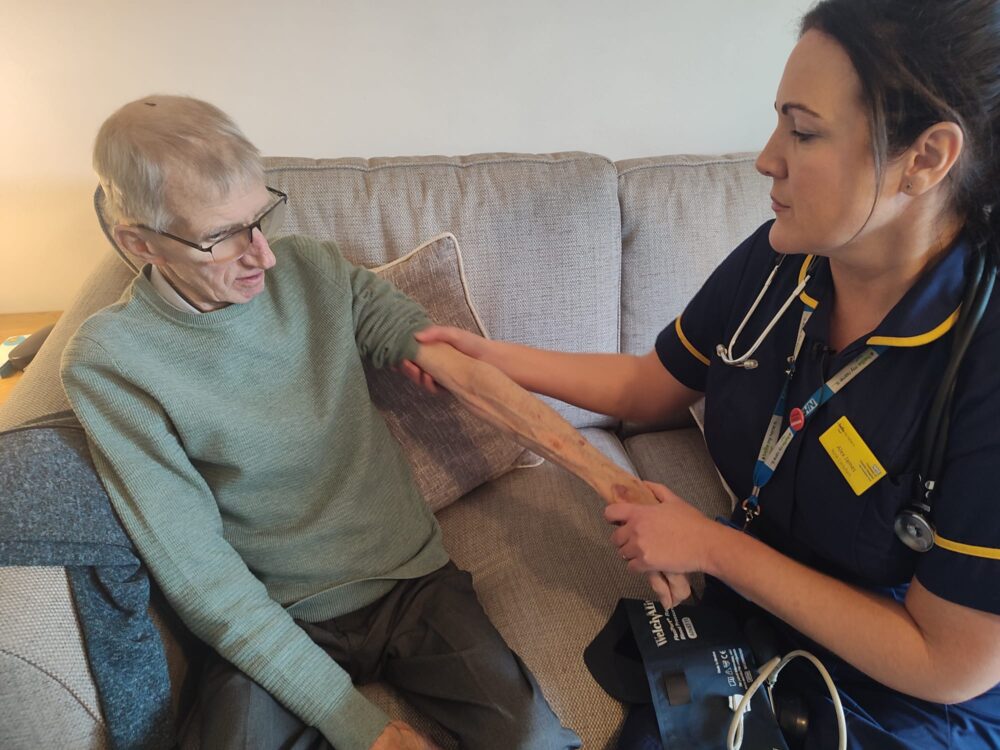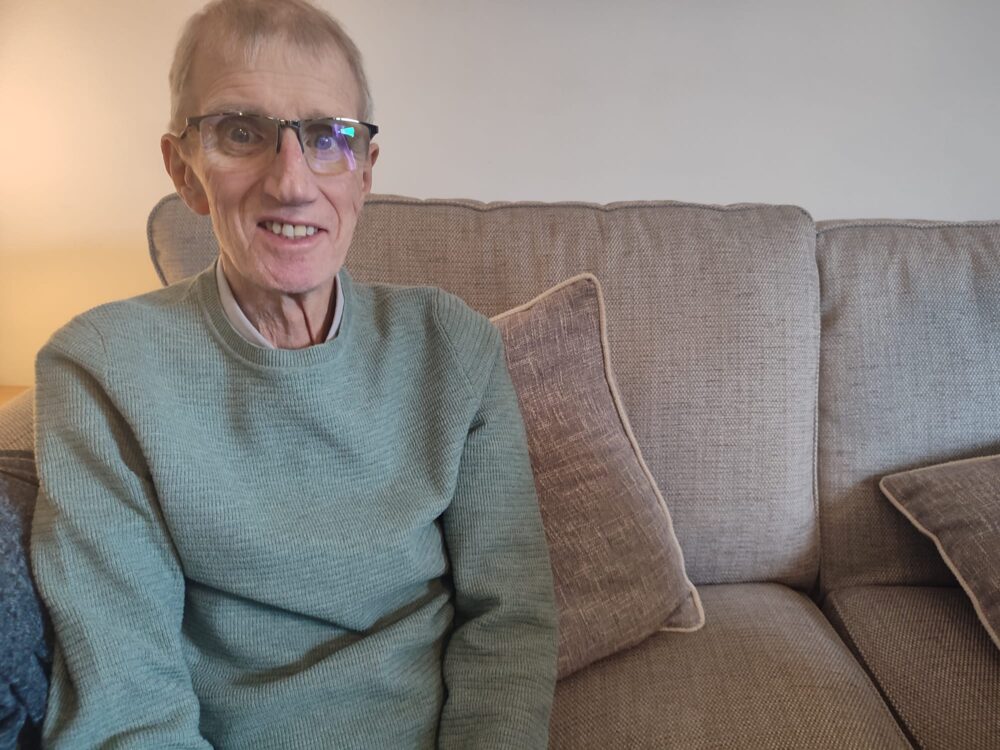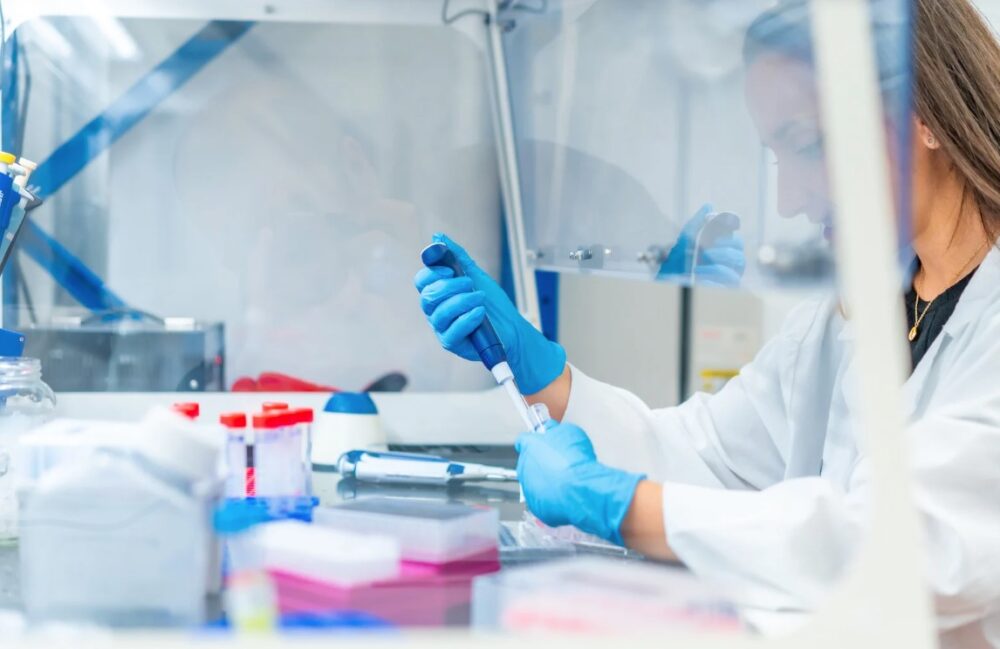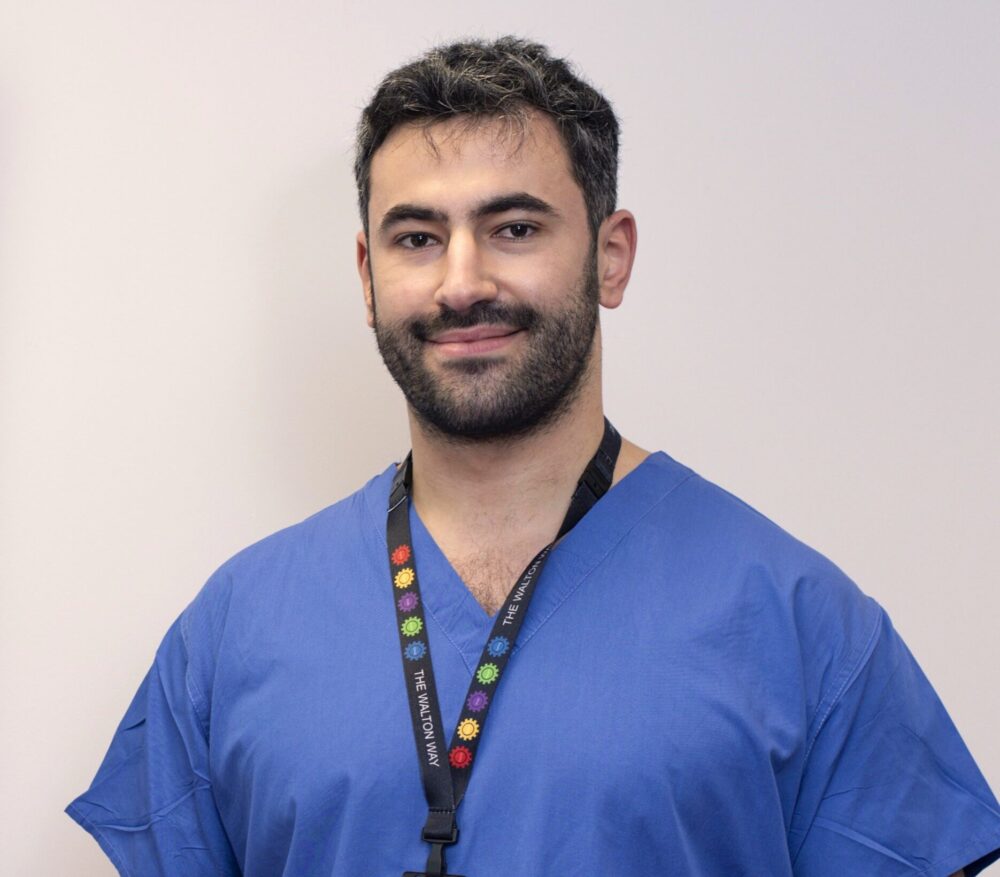
NHS
NHS Hospital at Home service revolutionising patient care in the North West this Winter
2 years ago

As winter descends, the Countess of Chester NHS Foundation Trust’s Hospital at Home service emerges as a lifeline for patients like John Gore from Cheshire.
Recently diagnosed with pneumonia, the 73-year-old was worried he might have had to spend the lead up to Christmas in hospital, until the Hospital at Home team stepped in, delivering top-tier treatment within the comfort of his home.
Hospital at Home service is just one of a number of initiatives being delivered by NHS teams and partners across the North West to help people stay in their homes – or return home as quickly as possible after a hospital stay.
Mr Gore was very poorly when he was referred to the Hospital at Home team by his GP, and was put on a two-hour urgent referral. The team arrived at his home within 45 minutes of the referral, and put him on IV antibiotics. He is now nearing the end of his treatment, under the care of the respiratory virtual ward team, and will be discharged very soon.
The GP led service, with a multi-disciplinary team compromising of nurses, advanced clinical practitioners, therapists and support workers provide a comprehensive offer to patients in their own homes, when previously they would have had to be in hospital. The offer includes several services, including two-hour community crisis response, virtual ward care and a home IV antibiotic service.
The Hospital at Home team’s combined urgent community response and virtual ward enables them to provide real, joined up care from referral to admission, and in the period from August to October 2023 a total of 939 referrals were made, with 90% of them being treated in the place they call home.
After being in and out of hospital in the past for a number of health issues, Mr Gore was absolutely delighted to be able to stay at home, especially in the run up to the festive season.
As well as providing the Hospital at Home service for those who are able to remain in their own homes, the team also work alongside local care homes, promoting direct referrals from the homes to the service for urgent needs.
The hospital-level treatment the team can provide within care homes helps to avoid unnecessary admissions and the collaboration meant 38% fewer care home residents attended A&E in the year to November 2023, compared to the year before.

Dr Chris Ritchieson, Clinical Lead for Hospital at Home in West Cheshire said:
“We were one of the first areas to have a Hospital at Home service and we certainly feel that this offers a really exciting and really promising type of care that many patients will choose, and I’m really proud of the work that our team does.
“The difference for patients is that they can be assessed and seen quickly by one of our expert team – in the vast majority of cases we can get out to patients within two hours – and in about 19 out of 20 cases the patients can stay at home to receive care there.
“The most important thing for us is to make sure that we are keeping our patients safe, so we have to be confident that we can provide them with the right quality and frequency of care. There will always be some conditions which are likely to need hospital care where you will need to be an in-patient, but for those where there is the option to be treated at home, many will choose this.”
Across the North West, virtual wards teams are helping more people to receive the care they need in the place they call home. Going into winter, the region has 1,300 virtual ward ‘beds’ that will care for patients with frailty, acute respiratory infections, chronic obstructive pulmonary disease (COPD), heart failure and several paediatric conditions.
As well as providing NHS services at home, the North West is dedicated to moving those who no longer need to be in hospital, back into the community.
Across the North West there are regularly 2,234 people in a hospital bed who no longer need the care a hospital provides. This figure has reached 2,400 at times and during winter last year was consistently above 2,200.
Every hospital in the region is now covered by a care transfer hub to enable staff to find the best and quickest discharge options for patients, working with teams from across the NHS, social care, housing and voluntary services.
Dr Paula Cowan, Regional Medical Director for Primary Care at NHS England – North West said:
“For many people, being treated in their own homes, with the support of their family and friends is the best way to recover from an illness. And anyone who has been in hospital over the festive period will know the sooner a patient is discharged, the sooner they can go home, surrounded by the people they love.
“Its so encouraging to see so many innovative services being delivered by the NHS across the North West, and it is these services that will help us to safely manage winter in the NHS this year; freeing hospital beds for critically and acutely unwell patients and avoiding unnecessary admission to hospital for those who can be safely managed at home.”
In addition, innovative discharge schemes such as the Hospital Discharge Carers Hub Partnership in Bury, and a similar scheme at Leighton Hospital delivered in partnership with Cheshire East Council, are identifying and providing support for adult carers before and after the person they care for is discharged, helping to reduce lengths of stay and prevent re-admissions.
Peter, 74, from Whitefield, Bury, was supported by Bury Carers Hub when his wife Jean was in Fairfield Hospital following a stroke getting ready for discharge.
He said:
“Firstly it was someone to talk to who understood and gave me advice and a listening ear. We don’t have any family as they all live in Australia, so I was on my own making decisions about the next steps. The carers hub continued to support me with telephone calls and chats even when Jean was discharged,”
Another innovation that has been introduced in parallel to the work the NHS in the North West is doing to bring care closer to home for patients is bringing delivery of services closer to home for the clinicians providing them, allowing them to care for even more of the region’s patients.
Wrightington, Wigan and Leigh NHS Foundation Trust is increasing the number of at-home workstations for radiology staff, originally introduced during the COVID-19 pandemic, so that staff can read X-rays and other images at home, increasing productivity and supporting staff retention.
NHS teams work incredibly hard to make sure patients get the most appropriate care for their needs. During the upcoming industrial action and festive period, we’d encourage people to continue to come forward for care and use services wisely.
Junior doctors will strike from 7am on 20 December to 7am on 23 December 2023, and then again from 7am on 3 January to 7am on 9 January 2024. The public should continue to use health services as they usually would – using 999 and A&E in life threatening and emergency situations, and using 111 online for less-urgent health concerns.








 Subscribe
Subscribe Follow Us
Follow Us Follow Us
Follow Us Follow Us
Follow Us Follow Us
Follow Us Follow Us
Follow Us











